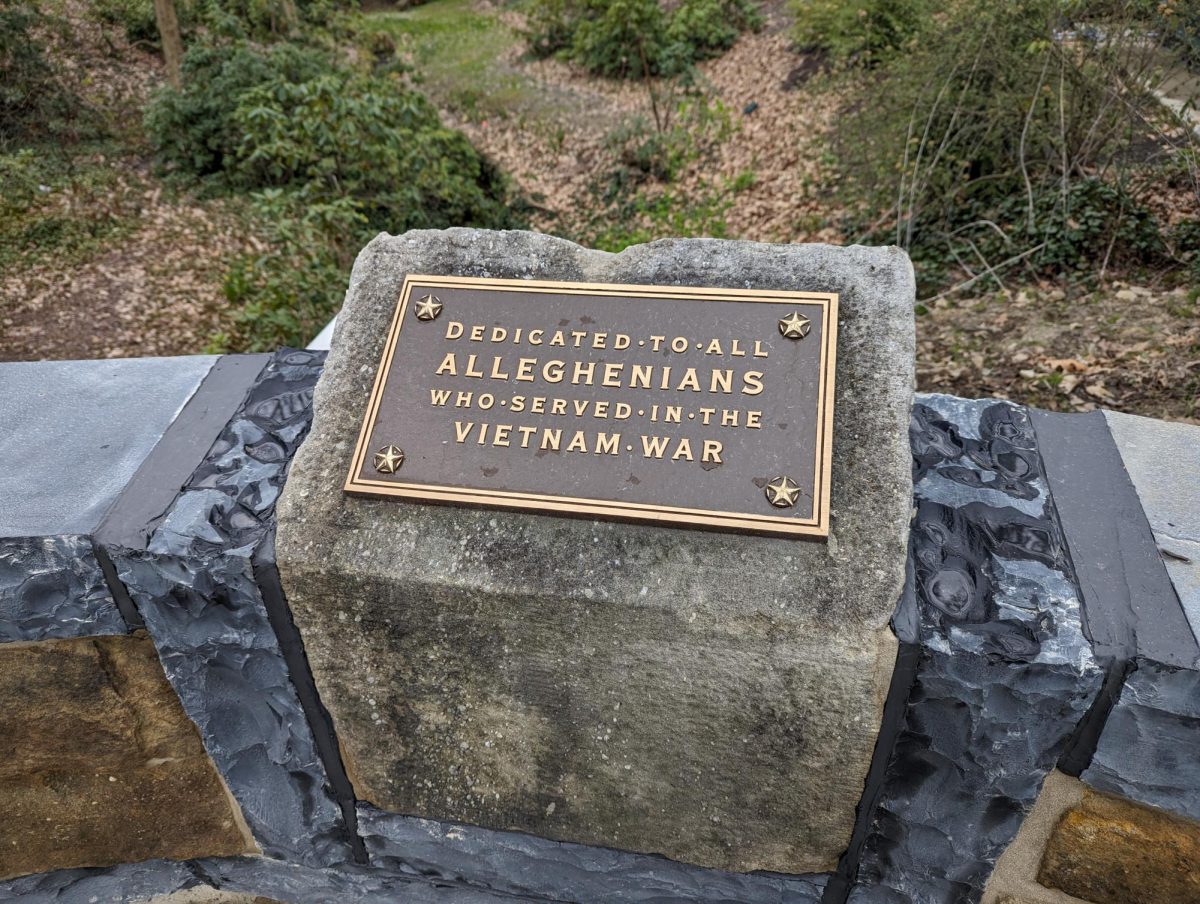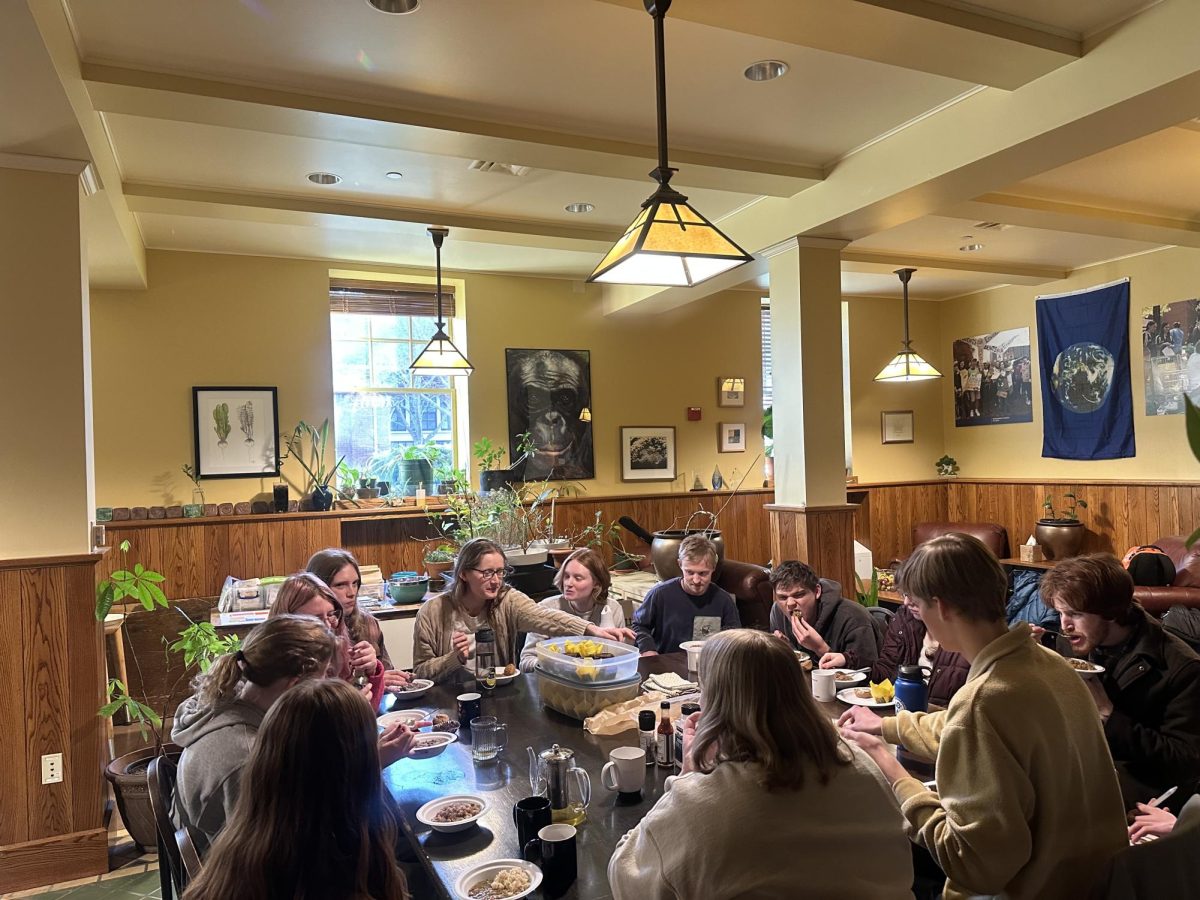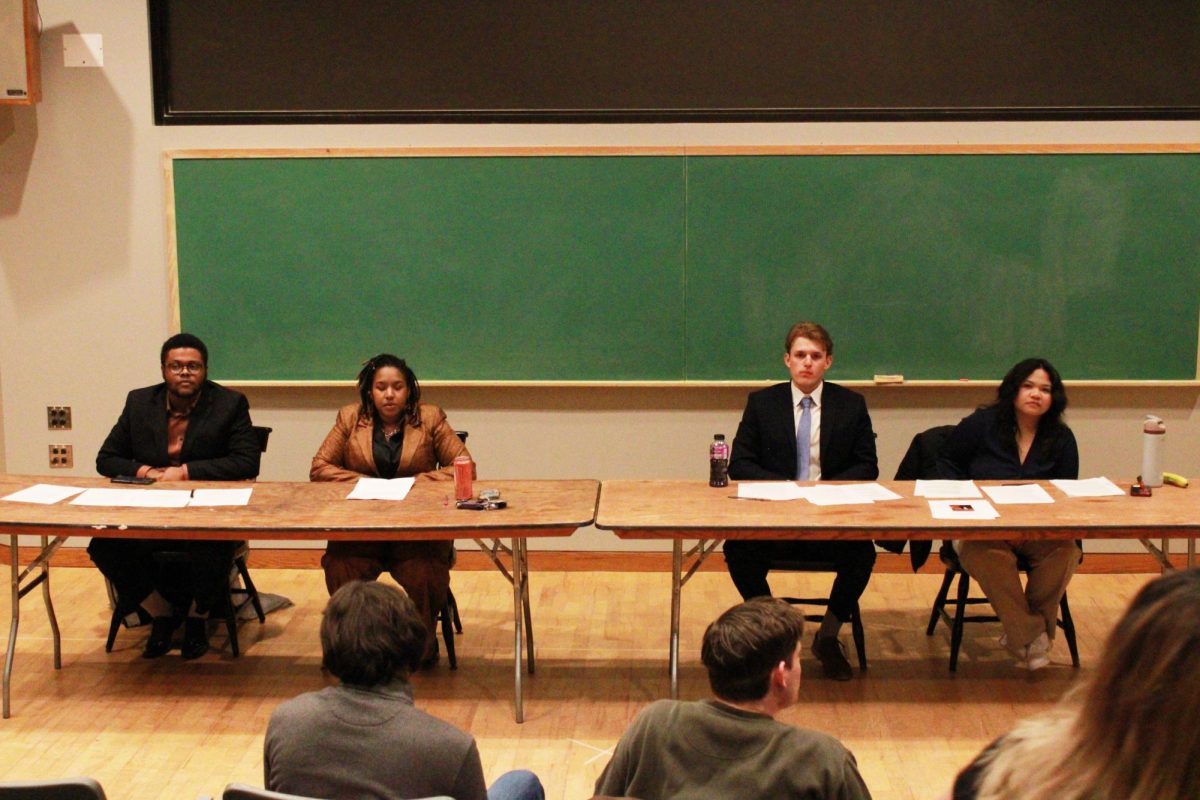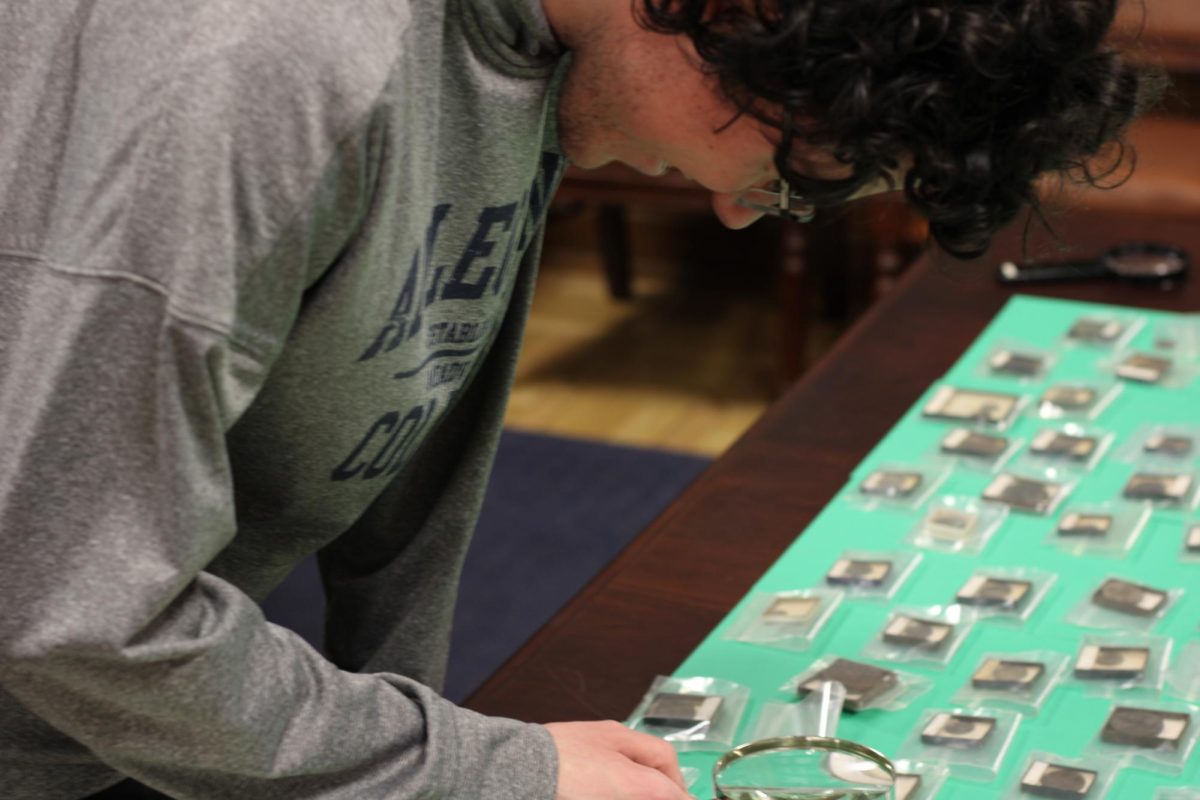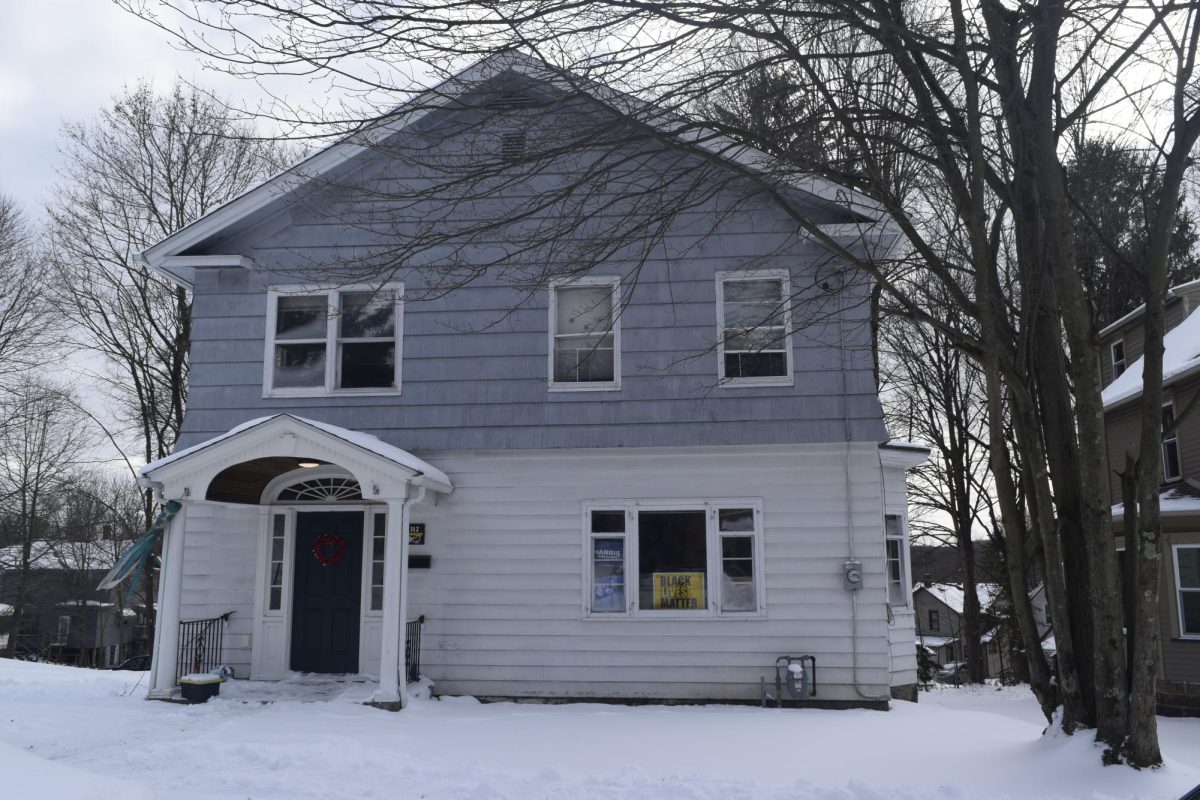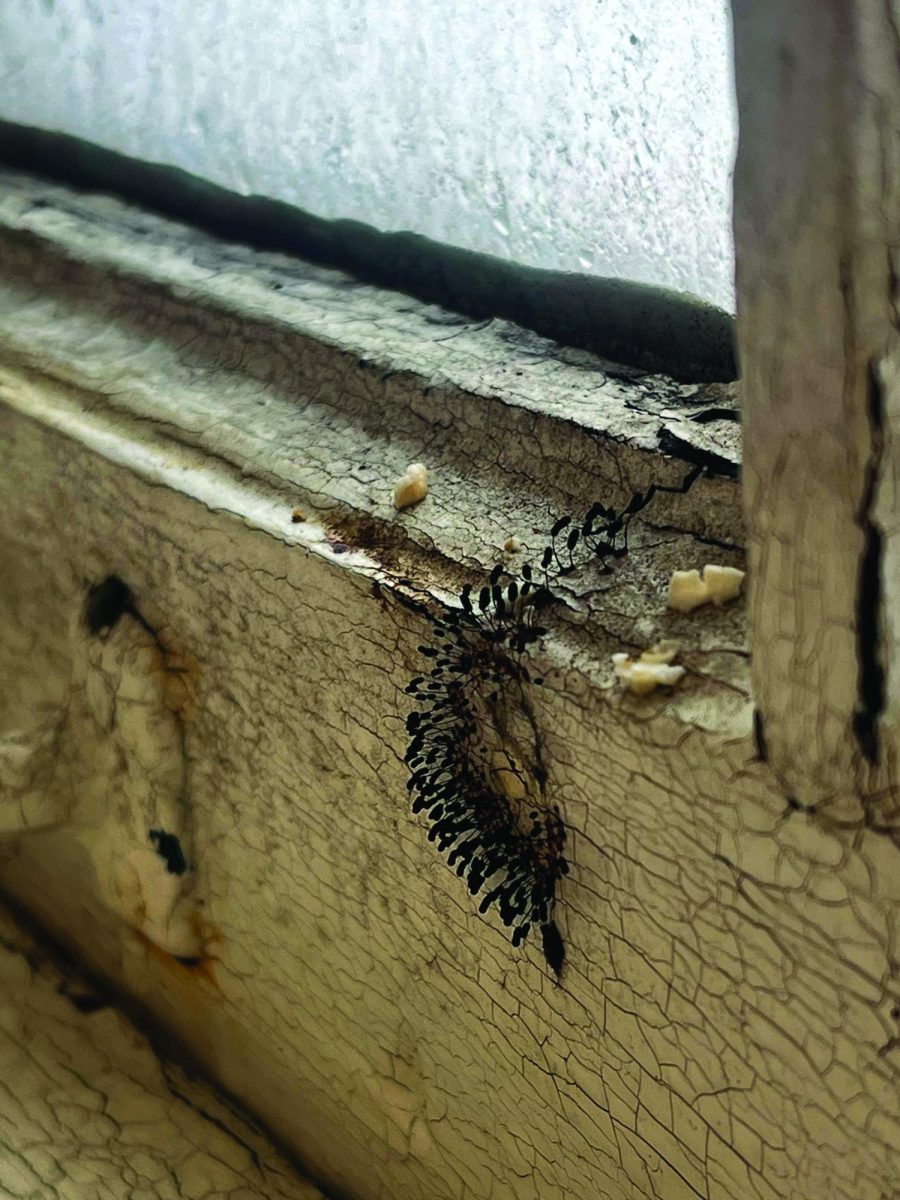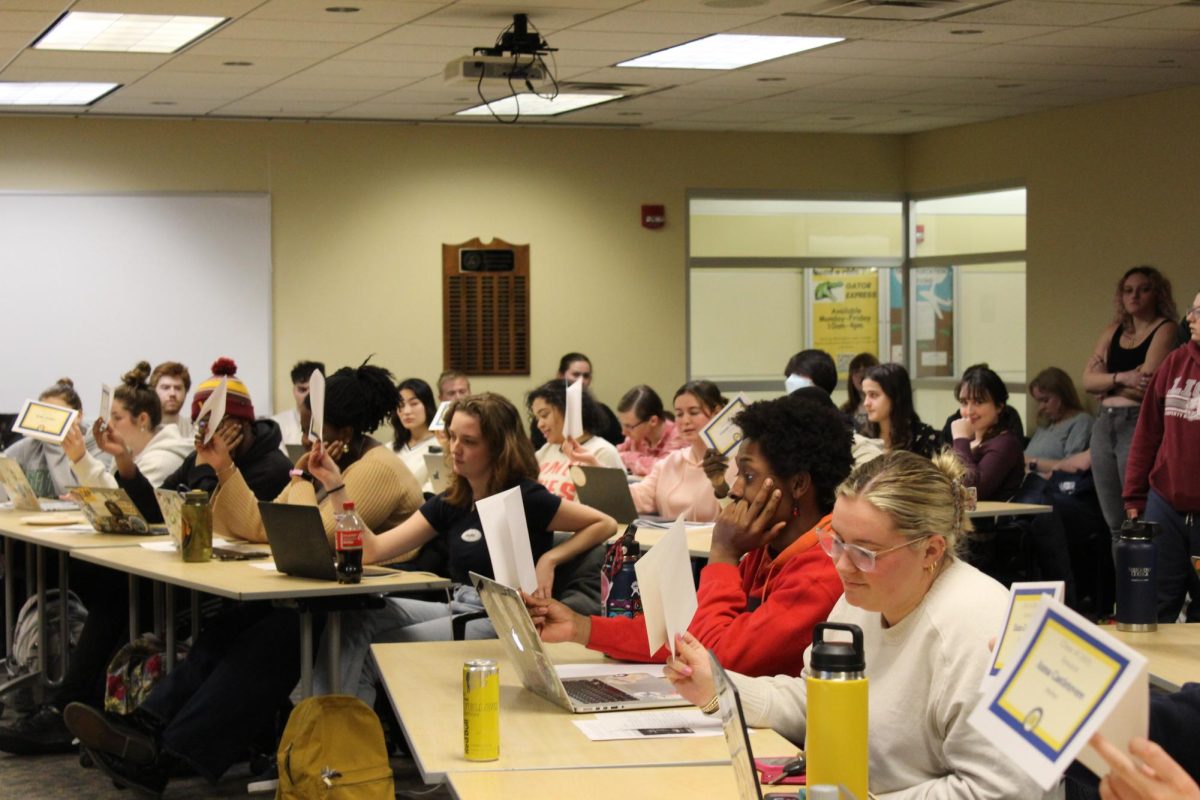Nearly 50 years after the end of the Vietnam War, a plaque memorializing Allegheny alumni who served in the war is being dedicated in a prominent location on campus. The memorial was originally dedicated in 2002 but was, until recently, located in the ravine by Bentley Hall.
A rededication ceremony will take place on Friday, April 26, along with moderated discussion with a panel of alumni who served. The panel, which is titled “Alumni Perspectives of the Vietnam War and the Sixties,” will take place in the Tippie Alumni Center and will be moderated by Associate Professor of History and Black Studies Alyssa Ribeiro.
“The sort of gist of the event is to really hear about some of the personal experiences of the era of the 1960s and the Vietnam conflict,” Ribeiro said.
Ribeiro teaches a history class titled “The Sixties in America” and was able to collaborate with the students in that class on possible questions to ask the alumni panelists.
“Some of the questions that we’ve posed are kind of asking our alums to think back to the climate of Allegheny’s campus during the 1960s and early ’70s — sort of what their individual experiences of the war effort were like,” Ribeiro said. “My students were also interested in hearing about what it was like when they came back to the U.S. after serving in Vietnam, because we sort of know that some veterans didn’t always get the most welcome reception upon returning from what was an increasingly unpopular conflict at the time.”
According to “Through All the Years: A History of Allegheny College,” the start of the war created a deep rift among students and between students and faculty. Faculty was also divided in the spring of 1969, a division that was “much based on age and former military service,” wrote author and former College Historian and Professor Emeritus of History Jonathan Helmreich.
While some faculty sought the support of students and aligned with their views, many students at the time clung to the slogan “Never trust anyone over thirty” and “made clear their lack of interest in most faculty opinions,” Helmreich writes.
A vocal minority of students demanded the college be closed to demonstrate opposition to national policy. The compromise with administration was to create a “moratorium,” in which an afternoon of classes on October 15, 1969 was set aside for discussion and panels on the war.
Professor of English and Director of Writing Alexis Hart, who also serves as the faculty advisor for Allegheny’s ROTC chapter, explained that it was not until recently that Allegheny had any interest in partnering with the Army ROTC program again as a result of the high tensions in the ’60s and ’70s. Opposition to the war is also why memorials for Vietnam specifically are less common.
“Lots of buildings and stadiums and other places on campuses were named in honor of World War I and World War II veterans,” Hart said. “But in the case of the Vietnam War, because of the lack of support for the war, especially in higher education, there was a lot of contention or opposition that dispelled producing patriotic monuments.”
The remnants of this could be seen on Allegheny’s campus before the Vietnam memorial plaque was relocated to the top of the ravine, as memorials for alumni who served in other wars were more visible. Hart’s “Meadville Military Matters” class analyzed the presence of memorials on campus and in Crawford county several years ago.
“My students noticed that while the placement of the Vietnam War memorial here on campus was in a very peaceful, kind of contemplative place down there in the ravine … it certainly wasn’t very visible in the way that, say, the World War I and World War II monuments are,” Hart said.
Five alumni will be present at the panel, all of whom graduated between 1965 and 1967.
Categories:
Vietnam War memorial rededicated today
The memorial honoring Alleghenians who served in the Vietnam War was originally located in the ravine by Bentley Hall, but has since been moved to the sidewalk above.
Story continues below advertisement
5
Tags:
More to Discover
About the Contributor
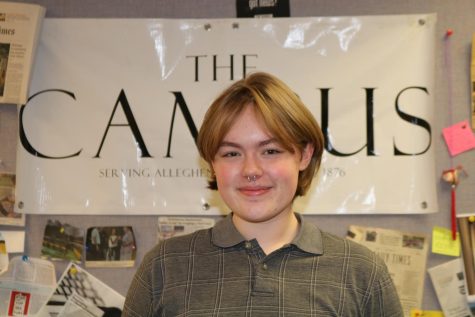
Sam Heilmann, Opinion Editor
Sam Heilmann is a sophomore from Johnstown, PA. She is majoring in Communications. This is her second year on the Campus staff, and her first as Opinion Editor. When she isn’t writing for The Campus, she enjoys painting, listening to music and spending time with her friends.



